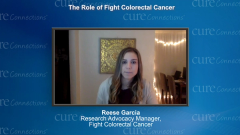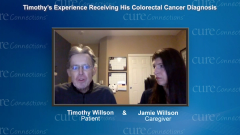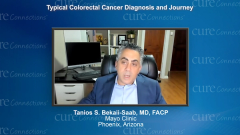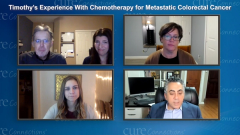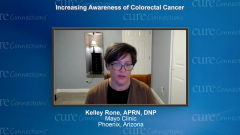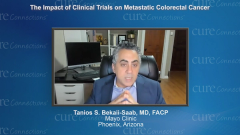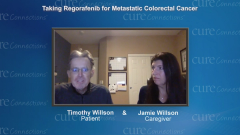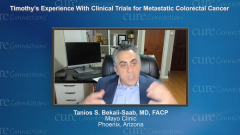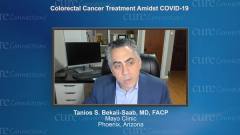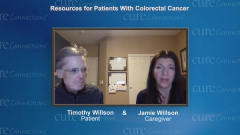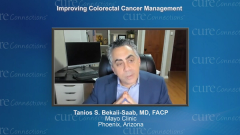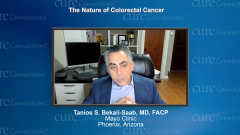
The Role of Fight Colorectal Cancer
Episodes in this series

Tanios S. Bekaii-Saab, MD, FACP: Reese, how does your advocacy group differ from others that support gastrointestinal cancers?
Reese Garcia: Some of the biggest ways that Fight Colorectal Cancer differs from other GI [gastrointestinal] advocacy organizations are through our specific focuses, which include patient education, policy, and research. We were founded about 15 years ago when it was apparent that there were no squeaky wheels in research or policy that were representing the patient voice, especially at either of these tables. Not only do we now create engaging and medically accurate patient education materials with the help of our patient education community, but we also fund research, and we convene the scientists around specific topics like you mentioned: early onset colorectal cancer [CRC] and immunotherapy. We also move policy forward at the state, local, and federal level.
Tanios S. Bekaii-Saab, MD, FACP: What resources does your website provide to patients and caregivers if we want to direct them to your advocacy group?
Reese Garcia: We have anything from blogs on patient stories to webinars on specific research topics, as well as podcasts on caregiving. We have a podcast that we call Taboo-ty, which covers taboo topics about the booty; that was a fun name that we gave our podcast. We have a whole wealth of resources that range from those modes I mentioned, and they cover all the topics of interest to the patient community and the caregiver community. I would like to note that we recently translated a bunch of our patient education materials into Spanish, knowing that our patient community is much more diverse than the English materials that we had them in originally. We also work with other organizations, knowing that we cannot do everything all at once. Our help line, for example, is a partnership with Cancer Support Community, and we leverage strengths in the community to bolster our patient education resources as well.
Tanios S. Bekaii-Saab, MD, FACP: How do you advocate for patients with CRC at every level? I know your group is active at every level, but perhaps it would be good for folks to hear how far and wide you all go for patients with colorectal cancer.
Reese Garcia: Our reach is national. We advocate, as I mentioned, at the policy level and at the research level. One policy example is our annual Call-on Congress, where we go to Washington, we storm Capitol Hill with over 150 advocates, and we advocate for policies that affect survivors of colorectal cancer and their loved ones. For example, we have advocated tirelessly to close the Medicare loophole bill, which charges seniors unexpected fees if they undergo a colonoscopy and have subsequent polyps removed: It changes from screening to diagnostic. We also, as you mentioned, advocate tirelessly for the under-45 patient population. Just the other week, USPSTF [United States Preventive Services Task Force] came out with its grade B recommendations, and Fight CRC played a part in that. We are convening stories and pushing out the need to provide recommendations and comments in this comment period. There are a lot of ways that we address advocacy from policy and research.
The other thing I would mention is that we have a group of research advocates who are patients, caregivers, and a few medical professionals who educate themselves on the science from bench to bedside and everything in between. The goal of that program is to train patient advocates to become the most educated voice at the research table, to advocate for the entire patient community, and to represent a different patient voice at the research table to advocate for the best possible care and treatment available.
Tanios S. Bekaii-Saab, MD, FACP: Great, thank you. You all do such a fantastic job at helping patients and caregivers through their difficult journeys, and you are certainly a great resource for them, but you are also a great resource for a lot of us. We can direct patients to you, to your website, and to your help lines, and we always hear great things from our patients who seek that out. Thank you for all you do.
Transcript Edited for Clarity

